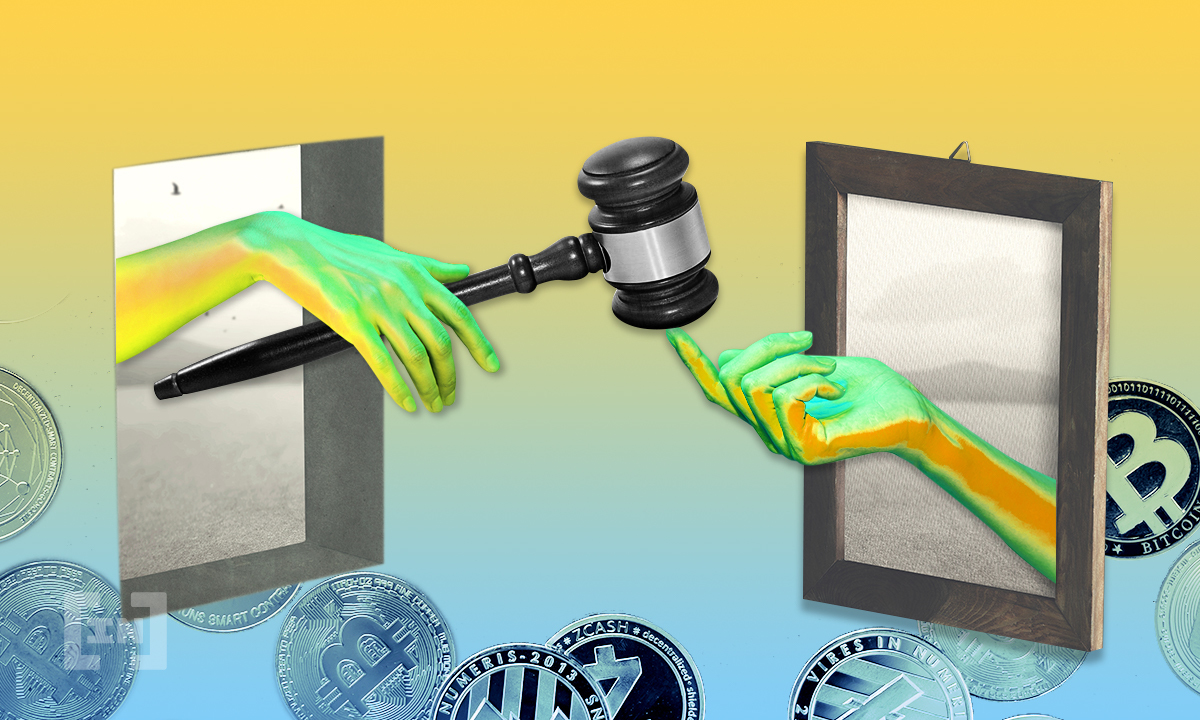Republican Lawmaker Drafts New Crypto Bill to Stymie Another Canada Situation

Canadian Prime Minister Justin Trudeau’s efforts to freeze bank and crypto exchange accounts of the anti-vaccine mandate protestors squeezed the organizers of the protest who brought international trade to its knees.
In solving the problem of the “Freedom Convoy,” Trudeau may find pro-crypto American politicians lining up to thank him for alerting them to the potential of draconian regimes invading the privacy of crypto wallets. One Republican lawmaker has already introduced a bill to keep the government in the U.S. from a Trudeau-esque crackdown.
The Canadian Prime Minister’s invocation of emergency powers has sparked dormant debates on crypto’s role in promoting civil disobedience and illegal activity. Alex Gladstein from the Human Rights Foundation (HRF) advocates funding civil liberties lobbyists fighting against dictatorial regimes using digital assets while acknowledging the potential for crypto to embolden illegal actors.
An argument to be made for de-anonymizing crypto
Governments concerned about criminal elements, especially in the specialized decentralized finance space, have every right to be, following the publication of Chainalysis’ cryptocurrency crime report, which discusses how cryptocurrency crime increased by 79 percent in 2021.
Decentralized finance services remove traditional payment intermediaries and methods, and instead rely on a piece of code called a smart contract to perform financial functions such as lending, borrowing, and growing investments.
Crypto liberates citizens from oppressive regimes, says Gladstein
Gladstein spoke of the plight of Venezuelans trapped in a dictatorial regime in a TIME piece in 2018, focusing on how unchecked authoritarianism erodes financial security and independence. According to the HRF, over half the world’s population lives under an authoritarian regime.
The Venezuelan regime, Gladstein points out, takes up to a 56% cut of inbound overseas remittances, with laws in place that compel banks to disclose information on the disbursement of customer funds. To avoid interacting with banks, one could have family wire money to Colombia, walk across the border to withdraw fiat currency, and walk back to Venezuela, an approach with significant risks.
In China, President Xi Jinping is able to track all transactions on Alipay and WePay, but can’t perform mass surveillance on all cryptocurrencies, nor can the Venezuelan regime, as there are no intermediaries to censor and surveil transactions. Hence cryptocurrency could be a lifeline for those in desperate need.
Freedom is at stake, argues the Right
Following the Canadian protest and government response, Republicans have been alerted to the potential of cryptocurrencies to promote civil liberties, given their inherent censorship-resistant nature. “There is a reason these petty authoritarians around the world hate bitcoin and crypto: They can’t control it,” opines Sen. Ted Cruz (R-Texas).
Republican Tom Emmer (R-Minn.) agrees with Cruz’s sentiments; “It’s the Communist Party of China’s strategy. It’s really just concerning that it’s come to the Western hemisphere,” said Emmer in an interview. “When your central government can control your movement, your speech, everything about your freedom? That’s not freedom. And this is really what’s at stake.”
Former U.S. President Trump attended a Conservative Political Action Conference in Orlando, Florida on Feb. 26, where he blasted Trudeau’s move against the truckers as that of a “left-wing fascist.”
From these statements, it does appear that many Republicans are pro-crypto. But why? New York Times writer Paul Krugman argues that Republican politicians gravitate towards cryptocurrency due to distrust in major institutions, sowed in the party by Trump during his presidency. So expect more Republican pro-crypto lawmaking in the not-too-distant future.
Disclaimer
All the information contained on our website is published in good faith and for general information purposes only. Any action the reader takes upon the information found on our website is strictly at their own risk.